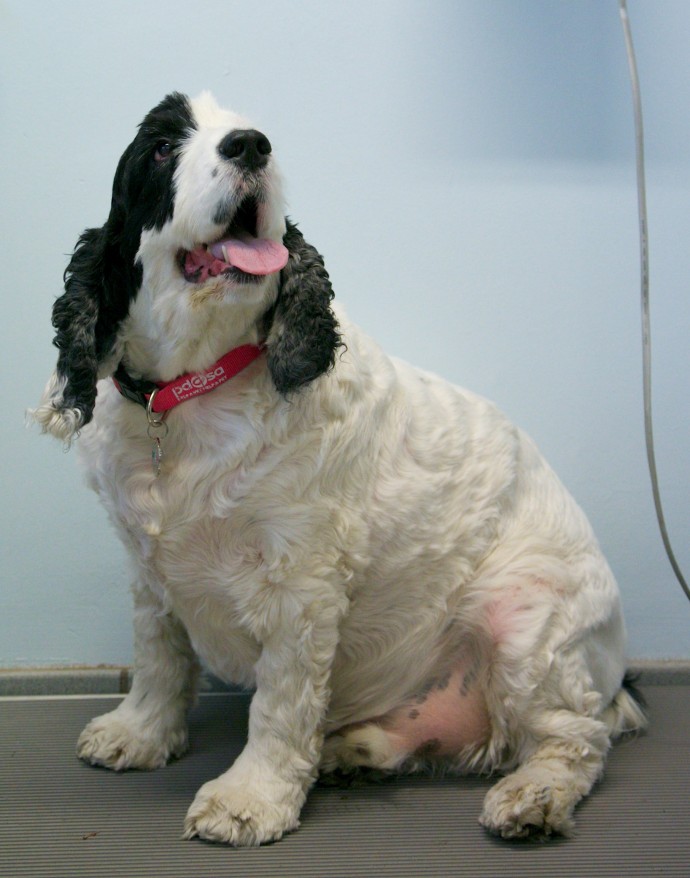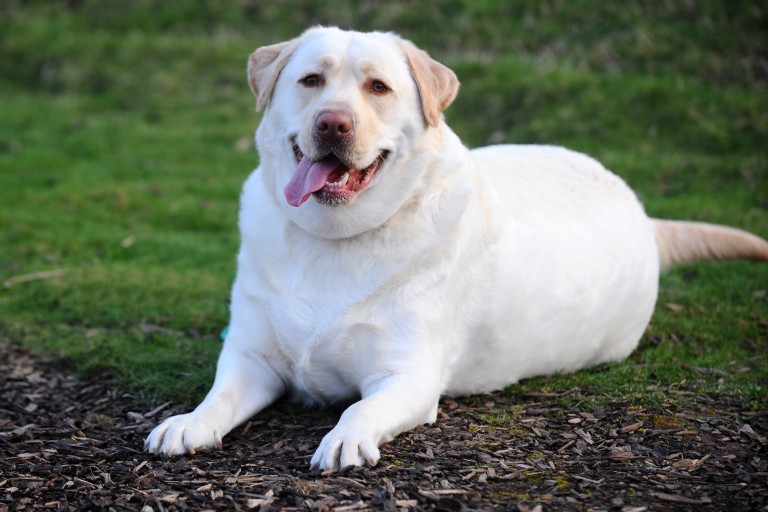Sadly, around a third of dogs and a quarter of cats in the UK are now overweight or obese, and these extra pounds create strain on their hearts, as well as causing other health problems.

Keeping your pet at a healthy weight by feeding them a balanced diet and giving them regular exercise is the best way to reduce the risk of weight-related health problems. This means not falling foul to those puppy-dog eyes begging for extra treats!
PDSA Vet, Vicki Larkham-Jones, said: “Being overweight can cause a whole host of health problems for pets. These can include heart, liver and joint problems, breathing difficulties and diabetes.
“Just like people, pets need to eat the right diet and get enough exercise to stay fit and healthy. But as many of us know, it’s not always easy.

“Checking your pet’s shape is a good way of telling if they are overweight as different species and breeds have different ideal weights – but a healthy shape is the same for all.”
By looking and feeling, pet owners can easily tell if their cat or dog is carrying unnecessary body fat.
Vicki’s 5-step weight-check for pets:
- Start by running your hands along your pet’s back. You should be able to feel the spine and hipbones quite easily under the skin, but they shouldn’t be sticking out.
- Next, run your hands over their sides – the skin should move freely over the ribs, which should be easy to feel.
- Feel under your pet’s tummy – it should go in, not bulge out.
- Gently squeeze the base of your dog or cat’s tail where it joins the spine. There shouldn’t be any build-up of fat.
- Finally, look at your pet from the side and from above. You should be able to see a waist: if not, they may be a bit overweight
Vicki added: “Obese pets find it harder to exercise and cope with hot weather. Pets put on weight simply by eating more food than they need. Luckily, in most cases, the answer is simple, too: it just takes time, and a bit of effort, to get them back in shape.

“If you think your pet might be overweight, a good place to start is usually your vet, who as well as checking there isn’t a medical reason for the weight gain, will be able to recommend a suitable diet and exercise programme.”
For peace of mind if your pet is poorly, PDSA offers pet insurance. The charity’s pet insurance is one way it raises funds to continue its vital work promoting responsible pet ownership and providing free vet care to the UK’s most needy pets. (www.pdsa.org.uk/shop/pdsa-pet-insurance)
PDSA is the UK’s leading veterinary charity, treating more than 470,000 pets annually across its 51 Pet Hospitals. The charity strives to improve all pets’ lives through education, preventive care and emergency treatment. For more information visit www.pdsa.org.uk.

